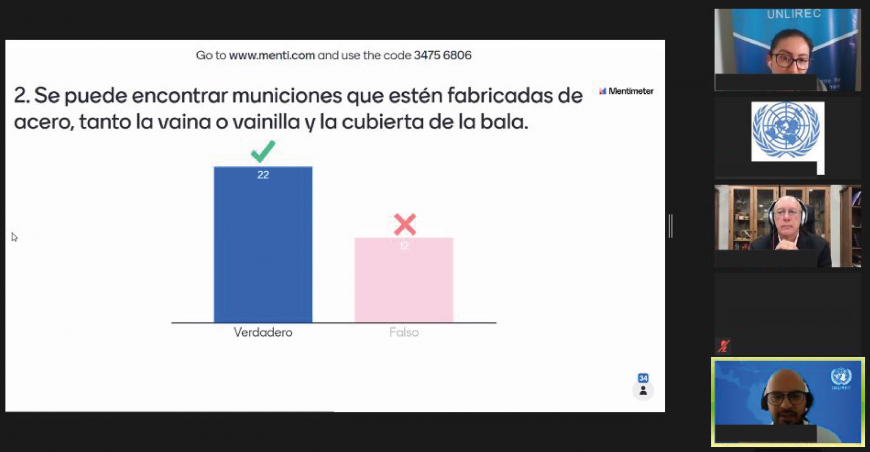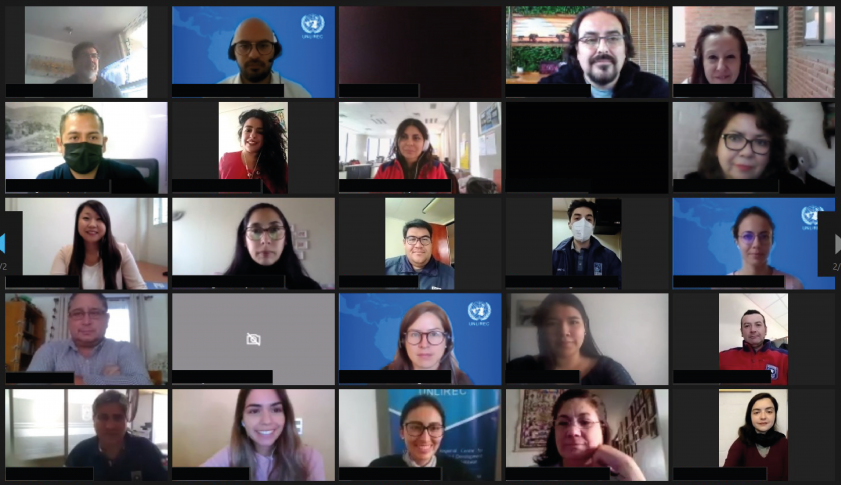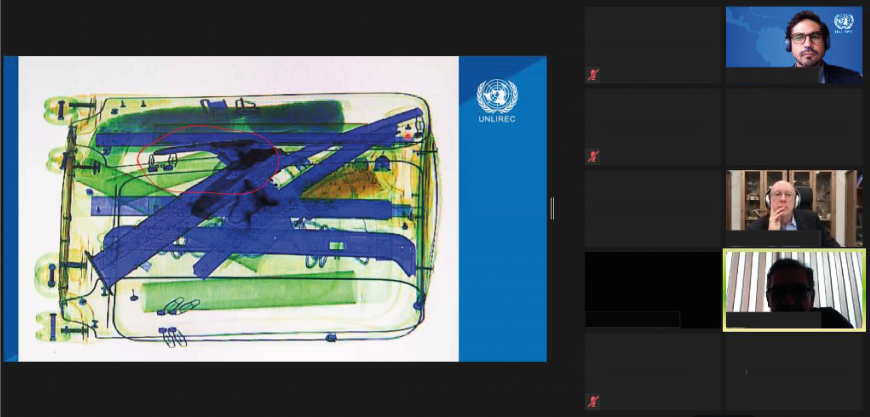Illicit arms trafficking is one of the major threats to security worldwide. Countries in Latin America and the Caribbean are no exception. This is an important contributing factor in the region’s high rates of armed violence and crime.
In light of this, and as part of the technical assistance that UNLIREC offers the countries in the region, between 19th and 23rd April, it delivered the Interdicting Small Arms, Ammunition, Parts and Components Course (ISAAPC) online. The course was aimed at X-ray operators from the National Customs Service and the Directorate General of Civil Aviation in Chile.
ISAAPC’s aim is to support national efforts to combat and prevent the illicit trafficking of firearms, ammunition, parts, components, and explosives through postal shipments, parcels, and luggage.
Through a combination of theory and practice, a group of 40 operators learnt about the fundamental aspects of X-ray technology and received training in identifying firearms, parts, components, ammunition, and explosives. There was also a special session on less dangerous firearms such as compressed air guns, blank guns, and replicas, among others, which illustrated how these differ from conventional firearms. There was another session on concealment methods commonly used by trafficking networks.

The sessions were supplemented by practical training on a platform built by the Centre for Adaptive Security Research and Applications (CASRA), on which participants developed their ability to recognise this type of threat.
This specialised technical course has been designed in order for X-ray screening operators to receive crucial continuous training to optimise security at entry, exit, and transit points in the region.
The course was administered by the Arms Trade Treaty’s Voluntary Trust Fund, of which Chile is a beneficiary and UNLIREC, at the request of the Chilean government, is an implementing partner.



